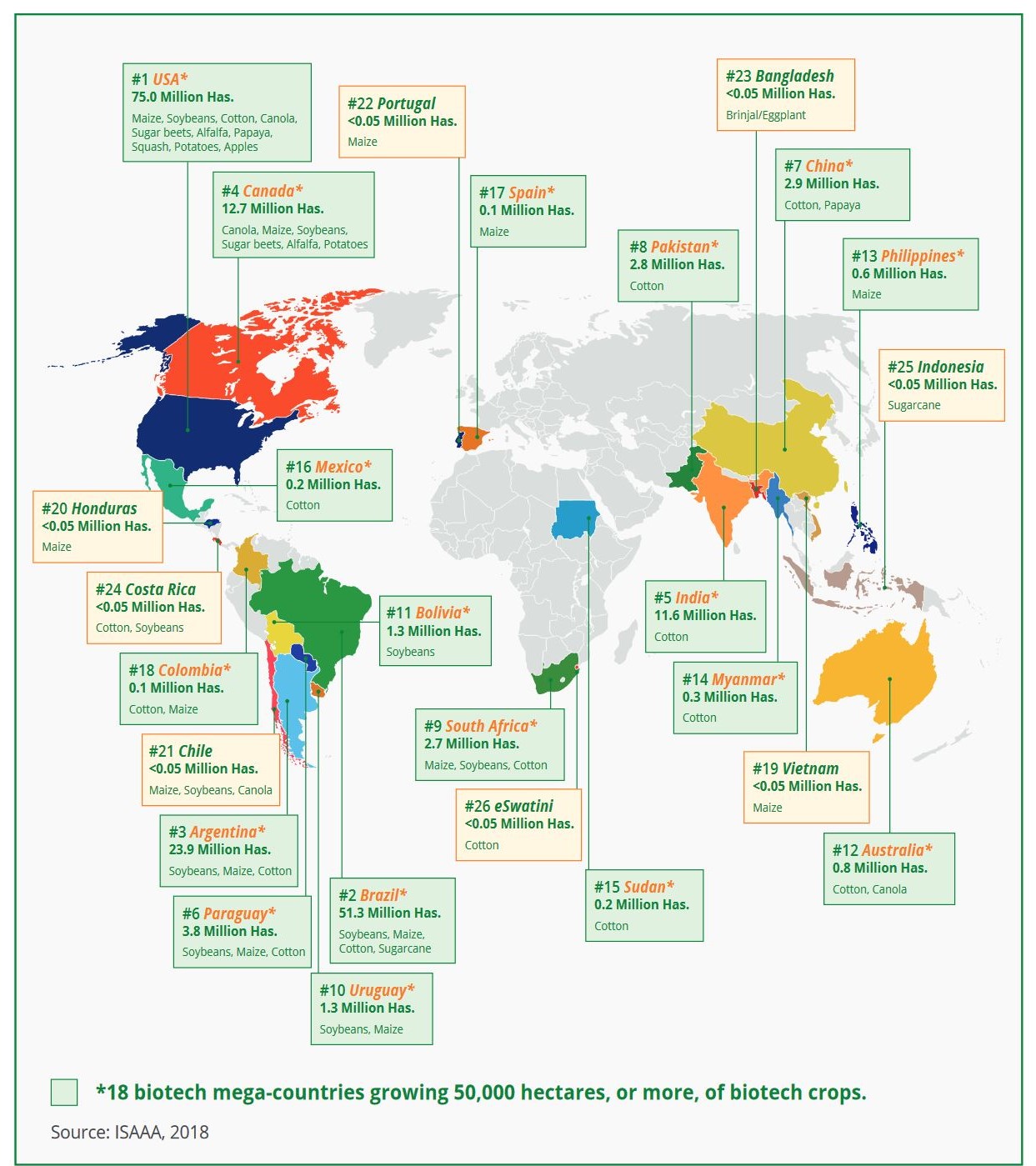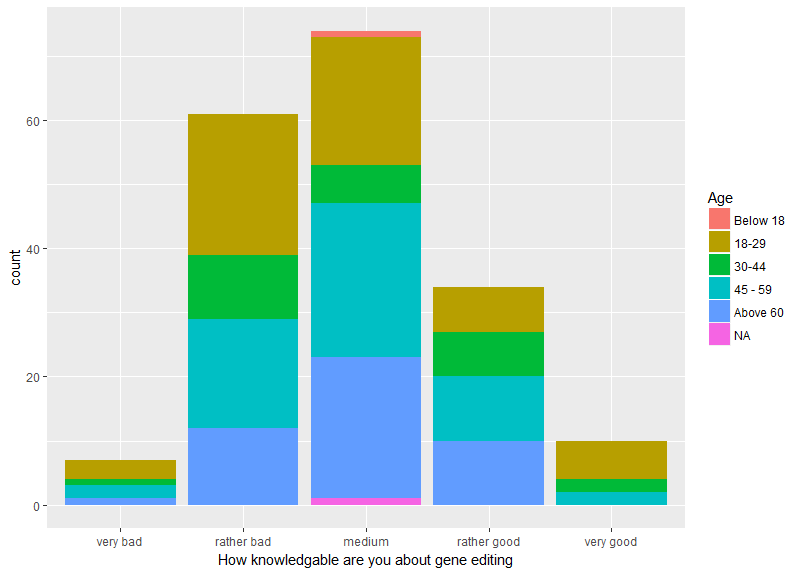|
|
| Line 558: |
Line 558: |
| | We advertised our panel discussion by running a booth at the plant breeders festival in Marburg on the | | We advertised our panel discussion by running a booth at the plant breeders festival in Marburg on the |
| | weekend of 14th September. It is an event for young and old people alike and the perfect platform to | | weekend of 14th September. It is an event for young and old people alike and the perfect platform to |
| − | bring our discussion closer to a diverse audience.<br> | + | bring our discussion closer to a diverse audience. |
| − | <br> | + | </p> |
| | + | <p style="text-align: justify; margin-bottom: 1em;"> |
| | When we talked with Nina Scheer, member of the German parliament from the Social Democratic Party, she | | When we talked with Nina Scheer, member of the German parliament from the Social Democratic Party, she |
| | told | | told |
| Line 571: |
Line 572: |
| | know enough about it and would like to hear more. Through personal discussions we were able to get in | | know enough about it and would like to hear more. Through personal discussions we were able to get in |
| | contact with people, raise awareness on the issue and also learned a lot ourselves about the landscape | | contact with people, raise awareness on the issue and also learned a lot ourselves about the landscape |
| − | of opinions.<br> | + | of opinions. |
| − | <br> | + | </p> |
| | + | <p style="text-align: justify; margin-bottom: 1em;"> |
| | At the same time we gave children and interested adults the chance to take a closer look at our work | | At the same time we gave children and interested adults the chance to take a closer look at our work |
| | by | | by |
| | letting them experimentally extract DNA from pepper (figure 1). We used this to also explain to the children what | | letting them experimentally extract DNA from pepper (figure 1). We used this to also explain to the children what |
| − | DNA is, what it means to them and what exactly they were doing in each step.<br> | + | DNA is, what it means to them and what exactly they were doing in each step. |
| − | <br> | + | </p> |
| | + | <p style="text-align: justify; margin-bottom: 1em;"> |
| | Due to the contact and discussion with people from the general society and especially outside of our | | Due to the contact and discussion with people from the general society and especially outside of our |
| | university background, the plant breeder festival expanded our knowledge and we therefore see it as a | | university background, the plant breeder festival expanded our knowledge and we therefore see it as a |
| Line 584: |
Line 587: |
| | evaluate around 200 questionnaires and further promote our panel discussion. This was demonstrated by | | evaluate around 200 questionnaires and further promote our panel discussion. This was demonstrated by |
| | the run on our subsequent panel discussion, where we were happy to recognize some familiar faces from the | | the run on our subsequent panel discussion, where we were happy to recognize some familiar faces from the |
| − | festival.<br> | + | festival. |
| − | <br> | + | </p> |
| | + | <p style="text-align: justify; margin-bottom: 1em;"> |
| | <b>Evaluation</b><br> | | <b>Evaluation</b><br> |
| | In our questionnaire, we first had the participants assess their current state of knowledge about | | In our questionnaire, we first had the participants assess their current state of knowledge about |
| − | genetic engineering and divided the questions into gender, age and basic attitude.<br> | + | genetic engineering and divided the questions into gender, age and basic attitude. |
| − | <br> | + | </p> |
| − | | + | <p style="text-align: justify; margin-bottom: 1em;"> |
| | As far as gender is of interest, most of the participants rated themselves in the criteria as | | As far as gender is of interest, most of the participants rated themselves in the criteria as |
| | "rather bad" and "medium". Men consider themselves to be better informed than women. Especially in | | "rather bad" and "medium". Men consider themselves to be better informed than women. Especially in |
| Line 598: |
Line 602: |
| | their self-assessment. It is possible that men are more self-confident in this aspect and thus, | | their self-assessment. It is possible that men are more self-confident in this aspect and thus, |
| | consider | | consider |
| − | themselves to be better informed.<br> | + | themselves to be better informed. |
| − | <br>
| + | |
| | </p> | | </p> |
| | <figure style="text-align:center;"> | | <figure style="text-align:center;"> |
| Line 625: |
Line 628: |
| | In the category “age”, the average self-assessment is also "rather bad" and"medium". However, | | In the category “age”, the average self-assessment is also "rather bad" and"medium". However, |
| | younger people (18-29) generally considered themselves to be better informed than older people. A | | younger people (18-29) generally considered themselves to be better informed than older people. A |
| − | problem is that the older generation may have more difficulty accessing information.<br> | + | problem is that the older generation may have more difficulty accessing information. |
| − | <br> | + | </p> |
| | + | <p style="text-align: justify; margin-bottom: 1em;"> |
| | It is also noticeable that the participants have a positive attitude towards genetic | | It is also noticeable that the participants have a positive attitude towards genetic |
| | engineering when they are better informed. This shows that there is not enough information on | | engineering when they are better informed. This shows that there is not enough information on |
| | genetic | | genetic |
| − | engineering and that it does not reach the population.<br> | + | engineering and that it does not reach the population. |
| − | <br> | + | </p> |
| | + | <p style="text-align: justify; margin-bottom: 1em;"> |
| | The first part of our study reveals two problems: bad accessibility of information to the older | | The first part of our study reveals two problems: bad accessibility of information to the older |
| | generation creates a discrepancy between the level of knowledge of younger and older people. As | | generation creates a discrepancy between the level of knowledge of younger and older people. As |
| Line 642: |
Line 647: |
| | as | | as |
| | people are obviously better attuned to genetic engineering when they know more about it. In general, | | people are obviously better attuned to genetic engineering when they know more about it. In general, |
| − | there is a need for better information on the subject and more discussions at a political level.<br> | + | there is a need for better information on the subject and more discussions at a political level. |
| − | <br> | + | </p> |
| | + | <p style="text-align: justify; margin-bottom: 1em;"> |
| | We then asked whether the participants considered genetic engineering in plants, animals and humans | | We then asked whether the participants considered genetic engineering in plants, animals and humans |
| | to be | | to be |
| − | ethically justifiable.<br> | + | ethically justifiable. |
| − | <br> | + | </p> |
| | + | <p style="text-align: justify; margin-bottom: 1em;"> |
| | Most people had a positive attitude towards plants. Here, many people probably recognized the | | Most people had a positive attitude towards plants. Here, many people probably recognized the |
| − | potential, also with regard to the 2050 food problem or resistance to pests.<br> | + | potential, also with regard to the 2050 food problem or resistance to pests. |
| − | <br> | + | </p> |
| | + | <p style="text-align: justify;"> |
| | Surprisingly, many participants are more likely to agree with genetic engineering in | | Surprisingly, many participants are more likely to agree with genetic engineering in |
| | humans than in animals. Most people probably think of the potential of genetic engineering to fight | | humans than in animals. Most people probably think of the potential of genetic engineering to fight |





















